Student & Staff Perspectives on Life at UCL History; Undergraduate Student Induction Project
8 September 2020
Current UCL History students came together this summer to reflect on their experiences at UCL History and to pass on their tips and advice to future cohorts of incoming undergraduates.
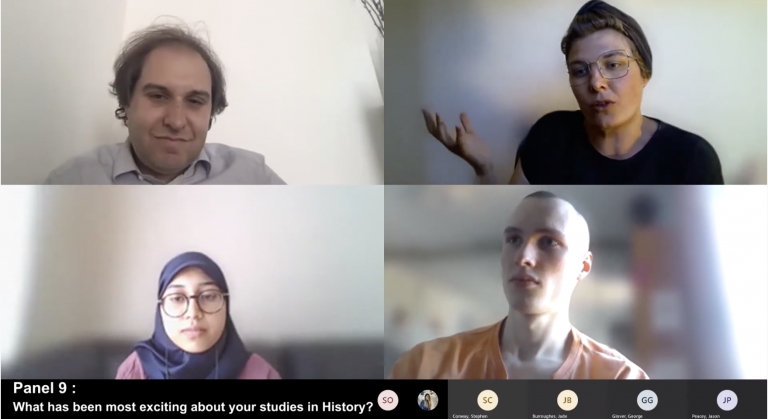
The idea underpinning the UCL History Undergraduate Student Induction Project is for current students to help future cohorts of incoming students to transition smoothly into life in our department, and to create a stronger sense of community within our department.
The project is led by Dr. Chloe Ireton and Dr. Patrick Lantschner and builds on the work that they started with the History Society at the induction weekend in 2019, when they hosted a panel discussion with students on the theme of Being a Historian at University. Over the course of four days in May 2020 current students and history tutors came together to reflect on the experience of studying History at UCL and life in London.
Our incoming cohort of undergraduate students may enjoy our first panel discussion:
Panel 1 - Being a Historian at University: What I wish I knew in my first week of the first year.
In our first discussion, we hope to help first-year students transition into life at University by sharing our experiences and memories of our own first weeks at UCL History.
You can watch all of the nine videos for the project here.
We spoke to some of the student and staff participants to ask them about their experiences on the project:
Jade Burroughes, Class of 2020
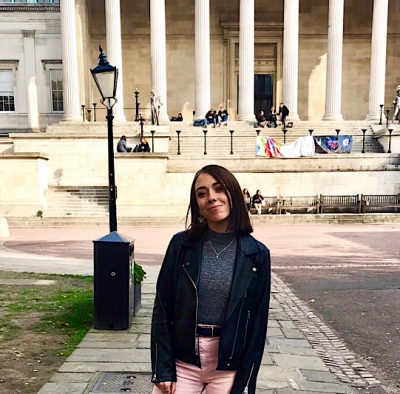
- What inspired you to join the UG History Induction Project?
As a first-generation student from a low-income background, the transition from A-Levels to University was no easy feat. The idea of moving to a big city, surrounded by people I didn’t know and confronted with an uncharted academic milieu was frankly terrifying to me. This sense of fear was slowly quashed as I adjusted to life at UCL. I began to discover that contrary to the damning myths about the isolating anonymity of university life and the ruthless ‘do everything yourself and don’t ask for help’ nature of undergraduate study, UCL History offered an extensive support system dedicated to facilitating the academic progress and pastoral wellbeing of its students. In short, I learned through experience that the challenges of university life were manageable and something to revel in, rather than shy away from. For me, The UG History Induction Project possessed the unique potential to bypass the initial period of trepidation and instil confidence in prospective students from the get-go. I believed the candid discussions about university life would demystify higher education and provide incoming students with the knowledge necessary to fully immerse themselves in university life in the absence of uncertainty. The opportunity to participate in such a valuable project was one I could not refuse.
- What discussion in the project did you find most memorable, informative, or important?
Panel 9 ‘What has been most exciting about your studies in History?’ was the most memorable for me. The discussion gave students and academics alike the opportunity to reflect on their academic journey and talk about what fuels their intellectual curiosity. The variety of interests which cropped up throughout the discussion, ranging from economic history in the Ancient world to social history in Modern America, really encapsulated the multidisciplinary nature of the department and the intellectual freedom that UCL History grants its students from day one. The panel brought to fore one of the most important things I have learned over the course of my degree; that it is more rewarding to be intellectually curious and risk making mistakes, than pursuing the path well-trodden in search of a ‘perfect’ grade. UCL History provided me with a unique space to experiment with my research, take intellectual risks and identify what truly excites me about history; this opportunity is something which prospective students should be fully aware of and eager to exploit.
Jade participated in Panel Discussion 9 What has been most exciting about your studies in History? What skills, knowledge, or ways of thinking have you developed? How do historians interpret and respond to the current global health crisis?
Panel 9 - What has been most exciting about your studies in History? What skills, knowledge, or ways of thinking have you developed? How do historians interpret and respond to the current global health crisis?
- What do you think was most valuable to you about the experience of taking part in the project?
For me, it was the candid nature of the panels which yielded the most rewarding insights. For perhaps the first time in my degree, I came to realise that feelings of imposter syndrome, fears of inadequacy and anxiety about the future were obstacles which many students encountered throughout their undergraduate experience. Beforehand, it was all too easy for me to assume that these problems, which were rarely discussed, were the result of some inherent, personal fault. The realisation that they were instead examples of unvoiced common experiences, felt and shared by a number of my course mates, made me feel less isolated. It is my hope that the panels will raise awareness of these issues and assure prospective students that whatever anxieties they may encounter throughout their time at UCL, they are not alone.
Jade took part in Panel Discussion 2: Life as a UCL History Student: Focus on Academic Matters; from 1st year to 3rd or 4th year; intellectual journeys; managing workloads; and making the most of dept.
Panel 2 - Life as a UCL History Student: Focus on Academic Matters; from 1st year to 3rd or 4th year; intellectual journeys; managing workloads; and making the most of dept.
Rachel Cooklin, Class of 2021
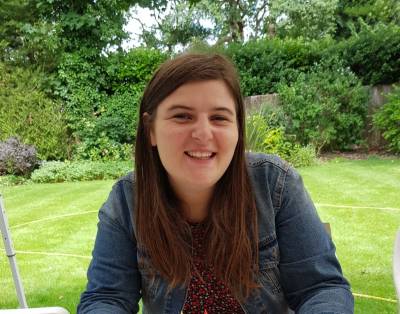
- What inspired you to join the UG History Induction Project?
I felt really lost when starting university. It felt like everyone knew what was going on except for me and I wasn’t sure who to ask or where to go when I had questions. It took me far too long to realise that everyone was just as confused as I was, and I didn’t really believe it until I heard the other panellists speaking about their similar experiences. For me the History Induction Project was a way to help incoming History students by providing some indirect support, answering a few questions, and hopefully calming some nerves.
- Originally, we were due to meet in person and film our discussions in the UCL Film Studio, but instead as the global health crisis developed, we pivoted online and met on Teams for four day-long sessions of workshops and panel discussions. How did you find the experience of pivoting to an online version of the project instead of meeting in person?
In many ways meeting online is more intimidating than meeting in person as it’s much harder to gauge body language and the group around you, especially in a discussion-based environment. However, I do think that being able to partake in the panels whilst being in your own space provides some comfort and allows for more self-expression (plus if it’s really awful you can just leave the call and blame your wifi!!)
- What was your experience of participating in the project? What did you enjoy most about the project?
I enjoyed the project much more than I had anticipated. I don’t think I had previously considered how much I have loved my time at UCL so far and it made me realise how grateful I was for the support I’ve received and experiences I’ve gained by studying History at UCL. It was also interesting to hear about the experiences of each of the panellists. In many areas we had the same experiences, bonding over the million stairs on Gordon Square or a mutual understanding of the pain of essay reading. Yet many of our experiences, within university and beyond, were so unique to the individual and being able to share those and listen to others was such a great opportunity to appreciate just how diverse the student body is at UCL.
- What discussion in the project did you find most memorable, informative, or important?
I hope that having such candid discussions about welfare and the support available to UCL students means that starting university is a less daunting experience for some students. The information and experiences discussed in the project aren’t being plucked out of a prospectus or morphed into a publicity campaign for the department and current students sharing their very real experiences provides an important opportunity for us to help others understand that there is no archetypal ‘uni experience.’ I think imposter syndrome sadly plays a massive role in the university experiences of so many and for me as a panellist hearing that other people from a variety of socio-economic and cultural backgrounds had also experienced this was so important and something I wish I had realised in my first year.
Rachel was a panellist on the panels that we ran on Student Welfare; Panel Discussion 6: Welfare during your degree: Student support, Personal Tutoring and Panel Discussion 7: Life in London – accommodation, friendship, social life, extra-curriculars, other responsibilities.
Panel 6 - Welfare during your degree: Student support, Personal Tutoring.
Panel 7 - Life in London – accommodation, friendship, social life, extra-curriculars, other responsibilities.
- What do you think was most valuable about the experience of taking part in the project?
Within our lectures and seminars, we create an environment of academic collaboration but through the panel discussions I was involved with on the project this atmosphere of cooperation was extended to sharing our experiences of History at UCL. For me this was a powerful experience, it made me appreciate the two years I have had at UCL so far and excited to begin third year in September.
- Do you think these videos will be valuable resource to incoming students?
My hope is that the videos provide some answers to questions that incoming students may have and that we, as panellists, were able to pass on the advice we wished that we had received as an incoming student.
- Any other comments or thoughts? Advice for incoming students?
Don’t be afraid to ask questions! If it feels like a silly question, there is always someone else in the group that is grateful you asked it (and it is usually me!)
Toby Payne, Class of 2020
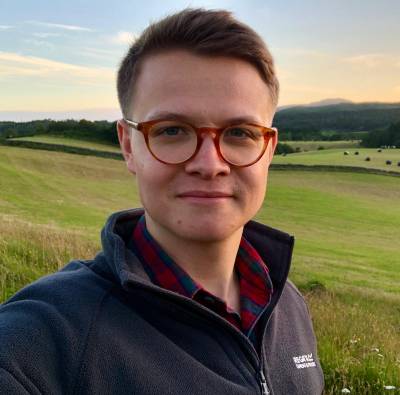
- What inspired you to join the UG History Induction Project?
I spent much of my first term at UCL panicking and anxious about my studies and the lack of familiarity of that. I found that while the Department did their best to support me in my First Year, that had I had more information prior to arriving at UCL then the transition would have been smoother and I would have been able to relax and enjoy my research far sooner. I thought that these panels were an excellent suggestion for equipping offer holders and for helping the department best assess what needs to be modified in order for students to thrive upon arriving in Gordon Square.
- What do you think was most valuable to you about the experience of taking part in the project?
I thoroughly enjoyed participating, it was such a joy to chat, share ideas with and reflect upon a happy three years at Gordon Square with co-students. In a sense, the discussions acted as a great reflective exercise for me to think over what I had really valued and learned from studying History at UCL, and to do so with others, in that hope it would make the arrival for incoming students smoother, was a real joy.
Dr. Chloe Ireton, Lecturer
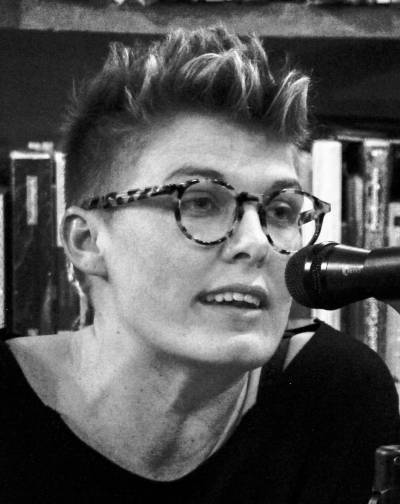
- What inspired you to work on the UG History Induction Project?
One of the greatest privileges of my role as a lecturer here at UCL History is the opportunity to work with young adults, and to witness them grow intellectually and socially as they develop important skills or ways of thinking over the course of a class, a semester, or their entire degrees. This is a huge responsibility and a great privilege. As part of my role co-organizing the academic induction program for new undergraduate students at UCL History last year with Dr. Patrick Lanschner, we spent a significant amount of time thinking about the intellectual and social journeys that undergraduate students embark on at UCL History, and talking to many of our students about their experiences over the course of their degrees in our department. Based on those discussions, we applied for a £3,000 Educational Enhancement Grant at the UCL Faculty of Social and Historical Sciences in order to lead a project that would enhance the induction materials for undergraduate students in the History Department at UCL. The idea was that we would use the grant money to employ current students to take part in a project to share their perspectives on life as a student in our department and pass on their tips and advice to future cohorts of incoming undergraduate students. In other words, current students who had accrued social capital throughout their University education would pass on their knowledge and reflections to the next generation.
- What did you enjoy most about the project?
The chance to engage in discussions with students panellists and many wonderful colleagues who are passionate about demystifying the University experience for new students. When I advertised the opportunity within our department, I received 25 stellar applications from our students, many of whom I had never met. Their applications for the job described their passion to join the project and to share their experiences and challenges at University with the next generation of UCL History students. I knew then that this would be a unique opportunity to center their voices and experiences. We were also joined by many wonderful colleagues in the History Department who generously gave up their valuable time to join for some of the discussions. It was a great pleasure to spend four days engaged in discussions about life in our department with students and colleagues in the department. I really enjoyed the panel on how Assessment and Essay writing works at UCL.
Panel 4 - How do assessments work in UCL History? Students’ experiences in essay writing, discussing marks, feedback, and academic support
- What discussion in the project did you find most memorable, informative, or important?
I enjoyed every panel, as the themes stretched from our work as historians and managing academic life to demystifying assessment and essays, and managing life in London. I was particularly struck by two concepts that the student panellists discussed throughout the panel discussions. The first was the notion that every module and assessment served as building block in the degree, and the second concept was the importance of each student finding their anchor in the department, and that such an anchor could be a personal tutor, a module tutor, a transition mentor, a friend, a student society, or even a physical place in the department. Those who watch the panel discussions will see these themes emerging repeatedly across all of our discussions. While I enjoyed all of the discussions, the most meaningful to me personally was Panel 5 on managing full- or part-time employment as a low-income undergraduate student.
 Close
Close

